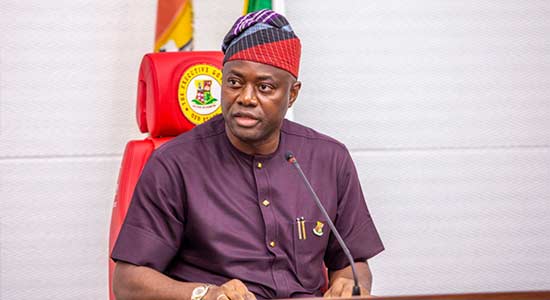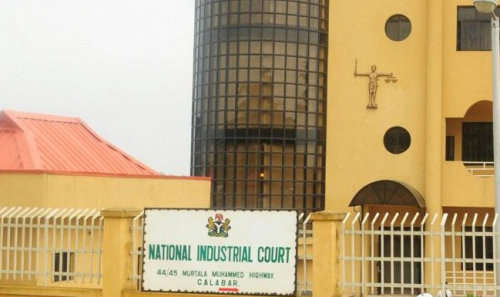COURTROOM NEWS 02/03/2022
Alleged N9b Money Laundering: Oyo Government Sues EFCC For Questioning Security Vote, Contingency Fund, Others

JUSTICE U. N. Agomoh of the Federal High Court, Ibadan, on Tuesday, ordered both the Oyo State government and the Economic Financial Crimes Commission (EFCC) to refrain from any action that will render final determination of the case instituted by the state government against the EFCC nugatory.
Agomoh gave the order after hearing the application of the Oyo State government that the 1999 constitution (as amended) which established the Consolidated Revenue Fund and Contingency Fund, has Security Vote as an integral part, superseded the powers of EFCC as contained in the EFCC Act of 2004.
The Oyo State government had, last Friday, instituted the case noting that the EFCC had since August 2021 been constantly requesting for financial documents that could be interpreted as auditing and investigating the expenditure of funds such that it denudes powers of the state governor as contained in section 176 of the constitution as Chief Security Officer of the state.
The state government had in the suit FHC/IB/23/22 pointed to a clash between provision of the 1999 constitution (as amended) and the EFCC Act of 2004, going by the EFCC questioning of how the state government expended and disbursed its security vote, other contingency fund and the consolidated revenue fund.
It argued that Section 80 to 88 of the 1999 constitution created Consolidated Revenue Fund and Contingency Fund and put disbursement of the funds within the purview of the president while investigation into the disbursement and expenditure of the funds is the duty of the National Assembly.
Similarly, the suit held that section 120 to 128 created the Consolidated Revenue Fund and Contingency Fund for the state government with disbursement and expenditure of funds within the purview of the governor while investigation of waste, corruption, inefficiency in expenditure is the function of the House of Assembly.
Though it noted that Section 6 of the EFCC Act 2004 provided for powers of the EFCC to investigate economic and financial crimes, the Oyo State government, in the suit held on to the constitutional provision that it is duty of the legislature to conduct investigation into disbursement and expenditure of the funds.
Also questioning the powers of the EFCC, the state government had argued that section 125 of the 1999 constitution established the Auditor-General of the state and imbued it with powers to audit public funds.
To this end, the state government argued that as long as the Auditor-General of the State House of Assembly had not complained to the EFCC, it could not continue to request for state documents tantamount to conducting an investigation into how the state expended Consolidated Revenue Fund and Contingency Fund, that is inclusive of security vote.
In particular, the state government had frowned on alleged intermittent molestation, quizzing of top state officials since August last year, with last Friday’s quizzing of the state Accountant-General, Mr Gafar Bello, being the latest.
Bello was released from EFCC detention on Monday evening after over 72 hours.
Bello’s detention followed an invitation by the EFCC over an ongoing investigation into the finances of the state government.
A source at the EFCC confirmed that the Oyo Accountant-General was detained over an investigation but failed to give specific details of the matter being investigated. The source, however, described as false reports that the Accountant-General is being quizzed over N9 billion fraud.
The source said, “The matter is still under investigation. It will be unprofessional to just give information now. But I can confirm that the Oyo Accountant-General was detained last Friday and released on Monday.
“The investigation is ongoing and there will be more to be unraveled. Once the investigation is concluded, it will be made public.”
However, government sources said the Accountant-General was questioned to disclose details of how the state governor expended the security vote that accrued to the state. Bello was said to have told the operatives of the EFCC that he does not have invoices for how the governor spent security vote and that it is only the governor that has the capacity to disclose such information.



